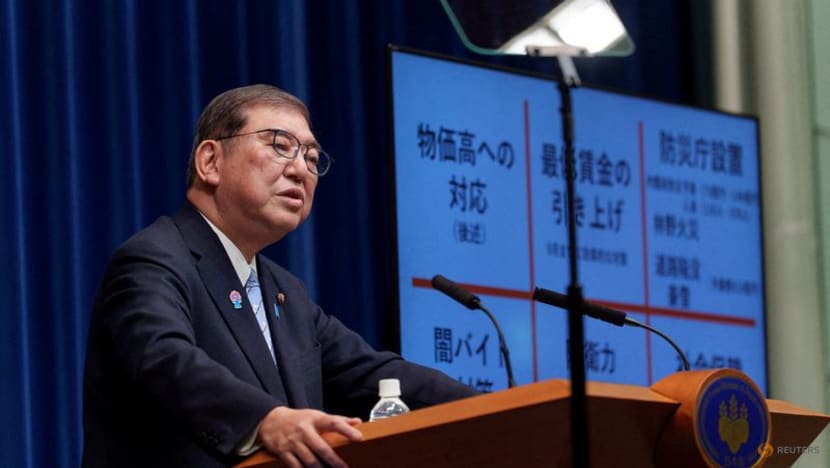Japan PM warns US tariffs have potential to disrupt global economic order

Japan's Prime Minister Shigeru Ishiba speaks during a press conference at the Prime Minister's office on Apr 1, 2025 in Tokyo, Japan. (File photo: Reuters/Pool/Nicolas Datiche)
TOKYO: Japanese Prime Minister Shigeru Ishiba said on Monday (Apr 14) that US tariffs have the potential to disrupt the global economic order, issuing his strongest warning to date about the damage that President Donald Trump's decisions could inflict on the world economy.
But he stressed that Japan will seek common ground with the United States on how the two countries can cooperate on issues ranging from trade and national security.
"In negotiating with the United States, we need to understand what's behind Trump's argument both in terms of the logic and the emotional elements behind his views," Ishiba told parliament.
"I am fully aware that what's happened so far has the potential to disrupt the global economic order," he said.
Ishiba also said the government is not thinking of issuing a supplementary budget now but stood ready to act in a timely fashion to cushion the economic blow from US tariffs.
The remarks come ahead of the start of bilateral trade talks on Thursday that are expected to cover themes ranging from tariffs and non-tariff barriers to exchange rates.
In the latest back-and-forth on tariff pronouncements, Trump said on Sunday that he would be announcing the tariff rate on imported semiconductors over the next week.
Economy Minister Ryosei Akazawa, Japan's top negotiator on trade talks with the United States, said any discussion on currency rates will be held between Japanese Finance Minister Katsunobu Kato and US Treasury Secretary Scott Bessent.
"Both countries share the view that excessive market volatility would have adverse effects on the economy," Kato told the same parliament session.














